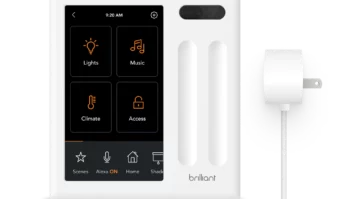
The eight-year-long GE Appliance saga appears to have come to a close with the signing of a $5.6 billion purchase agreement by Haier Group.
The deal comes five weeks after GE pulled out of a $3.3 billion buyout by Electrolux amid intransigence by federal regulators who feared a commercial cooking monopoly.
The latest deal, expected to close mid-year, hands Haier a $5.7 billion operation that’s roughly tied for first place with the Whirlpool brand in the U.S., where GE does about 90 percent of its business.
It also provides a new home for the unloved division, and presents a new opportunity to blunt the aggressive inroads of Korean manufacturers LG and particularly Samsung into the U.S. majap market.
The unit also maintains a 48 percent equity stake in Mabe, the No. 1 majap maker in Mexico.
It is unclear what integration plans, if any, Haier has for GE and Haier America, its long-adrift U.S. trade arm, which was taken in-house two years ago and given a fresh mandate under Whirlpool veteran Adrian Micu.
Since then, Haier has re-launched the $500 million business as a mass-premium lifestyle line, and could ostensibly leverage GE’s considerable prowess in laundry, bottom-mount refrigeration, logistics, R&D and the contract channel.
Haier could also gain entree to the ultra-premium market through GE’s luxury Monogram badge, as the deal includes long-term GE Appliance brand access.
Still, the agreement stipulates that GE will remain headquartered in Louisville, Ky., where the conglomerate has spent $1 billion to revitalize the aging infrastructure, while Haier maintains its own manufacturing complex in Camden, S.C., where the company is investing $72 million to expand refrigeration production.
GE chairman/CEO Jeff Immelt, who has long regarded the majap unit as a non-core business, said its solid performance had drawn “significant interest from potential buyers,” and described the new marriage as a good match.
The Chinese majap maker, No. 1 in worldwide unit volume, was a leading contender for GE’s majap business after it was put up for bid in 2008. But Haier eventually backed out due to weakening U.S. market conditions and difficulty in securing financing.
GE later added its lighting and distribution equipment businesses to the package, but eventually dropped its sale plans and instead invested $1 billion over three years in an effort to bring production back to the U.S. and update its plants and products.The for-sale signs returned in 2014, when Electrolux first made its ill-fated bid.
“GE Appliances provides Haier with great products, state-of-the-art manufacturing facilities and a talented team,” Immelt said, while conversely, “Haier has a good track record of acquisitions and of managing brands. Haier has a stated focus to grow in the U.S., build their manufacturing presence here, and to invest further in the business. Innovation, new product introduction and brand management are fundamental to their overall strategy.”
The agreement also yielded a long-term strategic partnership in advanced manufacturing, industrial Internet and healthcare, and a commitment from GE to help Haier to enhance its manufacturing efficiencies.
“Haier and GE share the same vision, and value innovation, customer service, and developing products of the highest quality,” said Haier Group chairman/CEO Zhang Ruimin. “This transaction underscores Haier’s devotion to creating a global platform for innovation, which will benefit both Haier and GE Appliances and deliver enhanced value to all stakeholders.
“Haier is committed to investing in the U.S.,” he continued. “In addition, together Haier and GE will explore opportunities for joint collaboration and, in doing so, establish a type of new alliance with comprehensive strategic cooperation between two world-class enterprises, which reflects our common understanding on opportunities brought by the Internet era.”
GE said the transaction has been approved by both companies’ boards and remains subject to customary closing conditions, including Haier shareholder approval and regulatory approvals.













